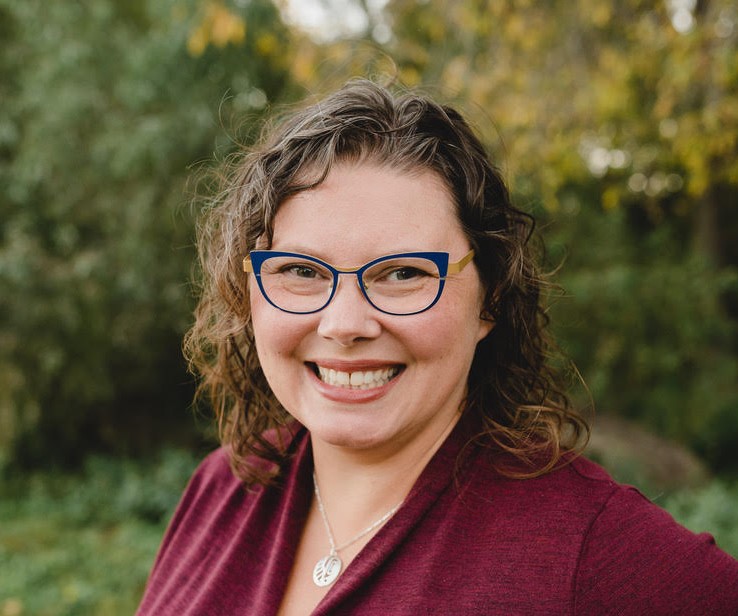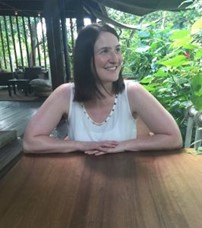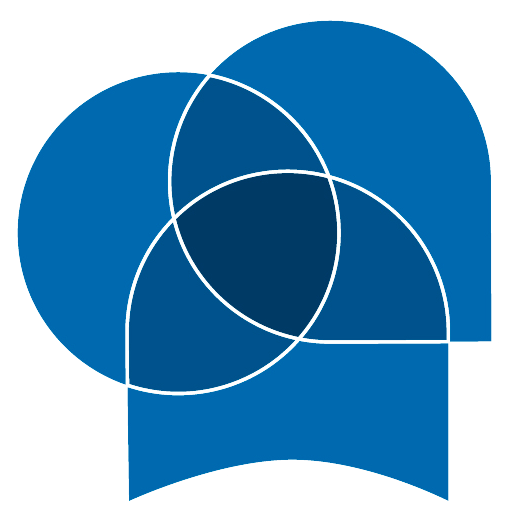Presented by the University of Manitoba
What makes for an ethical oral history project / program, and how can you use oral history in your museum?
In the following webinar, Pauline Tennent and Heather Bidzinski share their experiences using oral history in research, collections and exhibition work, while addressing some common challenges. This workshop explores what oral history is, the guidelines and resources available, and how to create a balanced approach to collection management, community engagement, and programmatic needs. Whether you are starting from scratch or dealing with historical collections, this session aims to answer some of the questions surrounding oral history projects, programs, and collections
Panellists

Heather Bidzinski is the Head, University of Manitoba Archives and Special Collections. She is an archivist by training with 15 years of experience in archives, records management, and collections care. She has had the privilege of honing her skills with institutions such as Library and Archives Canada (Ottawa, ON), Nova Scotia Archives (Halifax, NS), the Hudson’s Bay Company Archives (Winnipeg, MB), and the Provincial Archives of Manitoba (Winnipeg, MB). She is settling into her new role at the University of Manitoba after nearly ten years at the Canadian Museum for Human Rights. She is actively engaged in the archival community through committee and board work for the Association of Canadian Archivists, and the Association for Manitoba Archives. Her ongoing work with the Witness Blanket inspires her journey to incorporate Traditional Knowledge and Indigenous ways of knowing and being into current archival practice.

Dr. Pauline Tennent (she / her) is the Manager for the Centre for Human Rights Research (CHRR) at the University of Manitoba. She is a settler scholar who has worked for the past fifteen years exploring issues relating to reconciliation, settler colonialism, social movements, and social justice. She has extensive experience in community-based and qualitative research methodologies, and innovative, arts-based approaches to the development, translation, and exchange of knowledge. In particular, she has worked with young people to explore their understandings of health and equity, their access to healthcare, their experiences in the workplace, and their experiences of migration and settlement. Pauline has a Masters in Social Sciences from the University of Glasgow, and a PhD in Peace and Conflict Studies from the University of Manitoba. Her PhD explored how educators in Manitoba understand and experience Indigenous and settler relationships in Canada. Before joining the CHRR, Pauline worked with IN●GAUGE at the College of Nursing, the Canadian Museum for Human Rights, and the Arthur V. Mauro Institute for Peace and Justice.
Webinar References
Guidelines & Best Practices
Canadian Institutes of Health Research, Natural Sciences and Engineering Research Council of Canada, & Social Sciences and Humanities Research Council of Canada. (2014). Tri-Council policy statement: Ethical conduct for research involving humans. Retrieved from: https://ethics.gc.ca/eng/home.html
Collaborative Indigenous Research Digital Garden (highlighting collaborative Indigenous research projects and methodologies). Launched 2022. Retrieved from: www.collaborativeindigenousresearch.com
First Nations Information Governance Centre. (2014). Ownership, Control, Access and Possession (OCAPTM): The path to First Nations information governance. Ottawa, ON. Retrieved from: https://fnigc.ca/ocap-training/
Institute of Museum and Library. (n.d.). “Oral History in the Digital Age.” Available at: http://ohda.matrix.msu.edu/
Local Contexts. (n.d.) “Grounding Indigenous Rights.” Available at: www.localcontexts.org
National Park Service. (2022). “Facilitating Respectful Return.” Available at: https://www.nps.gov/subjects/nagpra/index.htm
Oral History Association. (2018). Principles and Best Practices. Retrieved from: https://oralhistory.org/principles-and-best-practices-revised-2018/
University of Manitoba Community Engaged Learning. (2022). “Working in Good Ways: A Pathway for Indigenous Community Engagement.” Available at: https://umanitoba.ca/community-engaged-learning/working-in-good-ways
WIPO. (n.d.). Genetic Resources, Traditional Knowledge, and Traditional Cultural Expressions. Available at: https://www.wipo.int/tk/en/
Reports
Truth and Reconciliation Commission of Canada. (2015a). Honouring the truth, reconciling for the future. Retrieved from Winnipeg, MB.: www.trc.ca/assets/pdf/Honouring_the_Truth_Reconciling_for_the_Future_July_23_2015.pdf
Truth and Reconciliation Commission of Canada. (2015b). Truth and Reconciliation Commission of Canada: Calls to Action. Retrieved from Winnipeg, MB.: http://trc.ca/assets/pdf/Calls_to_Action_English2.pdf
Legal Frameworks
UN General Assembly, United Nations Declaration on the Rights of Indigenous Peoples: resolution / adopted by the General Assembly, 2 October 2007, A/RES/61/295, available at: https://www.refworld.org/docid/471355a82.html [accessed 14 November 2022]
Journal Articles
Absolon, K. (2019). Decolonizing education and educators’ decolonizing. Intersectionalities: A Global Journal of Social Work Analysis, Research, Polity, and Practice, 7(1), 9-29.
Battiste, M. (2013). Decolonizing education: Nourishing the learning spirit. Saskatoon, SK.: Purich Publishing Limited.
Benson, K., & Nagar, R. (2006). Collaboration as resistance? Reconsidering the processes, products, and possibilities of feminist oral history and ethnography. Gender, Place & Culture, 13(5), 581–592.
Bhebhe, S, & Ngoepe, M. “Building counter-archives: oral history programmes of the Sinomlando Centre and Memory Work in Africa and the South African History Archive.” Information Development 38, no. 2 (2022): 257-267.
Bishop, R. (2005). Freeing ourselves from neo-colonial domination in research: A Kaupapa Māori approach to creating knowledge. In N. K. Denzin & Y. S. Lincoln (Eds.), The SAGE Handbook of Qualitative Research (3rd ed., pp. 109-138). Thousand Oaks, CA.: SAGE Publications, Inc.
Bonilla-Silva, E., & Zuberi, T. (2008). Toward a definition of white logic and white methods. In T. Zuberi & E. Bonilla-Silva (Eds.), White logic, white methods: Racism and methodology (pp. 3-30). Lanham, MD.: Rowman & Littlefield Publishers, Inc. Carr, P. R. (2016). Whiteness and white privilege: Problematizing race and racism in a “color-blind” world, and in education. International Journal of Critical Pedagogy, 7(1), 51-74.
Bull, Anna Cento, and Chris Reynolds. “Uses of Oral History in Museums: A Tool for Agonism and Dissonance or Promoting a Linear Narrative?.” Museum & Society 19, no. 3 (2021): 283- 300.
Carter J., & Orange J. (2012). Contentious Terrain: Defining a Human Rights Museology, “Museum Management and Curatorship” 27(2).
Carter J. & Orange J. (2017). The Work of Museums: The Implications of a Human Rights Museology, presented at the Federation of International Human Rights Museums Conference, International Slavery Museum, Liverpool, 2011, https://www.fihrm.org/wp content/uploads/2017/07/J CarterJ Orange- Paper-2011.pdf
Denzin, N. K., & Lincoln, Y. S. (2008). Introduction: Critical methodologies and Indigenous inquiry. In N. K. Denzin, Y. S. Lincoln, & L. T. Smith (Eds.), Handbook of critical and Indigenous methodologies (pp. 1-20). Los Angeles, CA.: SAGE Publications, Inc.
George, K., & Stratford, E. (2016). Oral history and human geography. In I. Hay (Ed.), Qualitative research methods in human geography (4th ed., pp. 189-201). Don Mills, ON.: Oxford University Press.
Grande, S. (2008). Red pedagogy: The un-methodology. In N. K. Denzin, Y. S. Lincoln, & L. T. Smith (Eds.), Handbook of critical and Indigenous methodologies (pp. 233-254). Los Angeles, CA.: SAGE Publications, Inc.
Grande, S. (2018). Refusing the university. In M. Spooner & J. McNinch (Eds.), Dissident knowledge in higher education (pp. 168-192). Retrieved from: https://ourspace.uregina.ca/bitstream/handle/10294/8299/Dissident%20Knowledge.pdf?sequ ence=1&isAllowed=y
Guba, E., & Lincoln, Y. S. (1994). Competing paradigms in qualitative research. In N. K. Denzin & Y. S. Lincoln (Eds.), Handbook of qualitative research (pp. 102-117). Thousand Oaks, CA.: SAGE Publications, Inc.
Hart, M. A. (2010). Indigenous worldviews, knowledge, and research: The development of an Indigenous research paradigm. Journal of Indigenous Voices in Social Work, 1(1), 1-16.
High S., Research Ethics, Centre for Oral History and Digital Storytelling, Concordia University, http://storytelling.concordia.ca/toolbox/ethics
Islam, N. (2000). Research as an act of betrayal: Researching race in an Asian community in Los Angeles. In F. Winddance Twine & J. W. Warren (Eds.), Racing research, researching race: Methodological dilemmas in critical race studies (pp. 35-66). New York, N.Y. : New York University Press.
Janesick, V. J. (2014). Oral history interviewing: Issues and possibilities. The Oxford handbook of qualitative research (pp. 300–314). Oxford University Press.
Janesick, V. J. (2019). Oral history, the public record, and the story. In P. Leavy (Ed.), The Oxford handbook of methods for public scholarship (pp. 289–303). Oxford University Press.
Jessee, E. (2011) The Limits of Oral History: Ethics and Methodology Amid Highly Politicized Research Settings, The Oral History Review, 38:2, 287-307, DOI: 10.1093/ohr/ohr098
Kovach, M. (2005). Emerging from the margins: Indigenous methodologies. In L. Brown & S. Strega (Eds.), Research as resistance: Critical, Indigenous and anti-oppressive approaches (pp. 19-36). Toronto, ON.: Canadian Scholars’ Press.
Kovach, M. (2009). Indigenous methodologies: Characteristics, conversations and contexts. Toronto, ON.: University of Toronto Press.
Memmi, A. (1991). The colonizer and the colonized (Expanded ed.). Boston, MA.: Beacon Press.
Moosa-Mitha, M. (2005). Situating anti-oppressive theories within critical and difference centred perspectives. In L. Brown & S. Strega (Eds.), Research as resistance: Critical, Indigenous and anti-oppressive approaches (pp. 37-72). Toronto, ON.: Canadian Scholars’ Press.
Mulvihill, T & Swaminathan, R. (2022) Oral History and Qualitative Methodologies. 1st edn. Taylor and Francis.
Olive, J. L. (2014). Reflecting on the tensions between emic and etic perspectives in life history research: Lessons learned. Forum: Qualitative Social Research, 15(2).
Portelli, A. (2010). They Say in Harlan County: An Oral History. Oxford: Oxford University Press.
Portelli, A. (2003). The Order Has Been Carried Out: History, Memory, and Meaning of a Nazi Massacre in Rome. New York: Palgrave MacMillan.
Portelli, A. (1991). The Death of Luigi Trastulli and Other Stories: Form and Meaning in Oral History. Albany: State University of New York Press.
Potts, K., & Brown, L. (2005). Becoming an anti-oppressive researcher. In L. Brown & S. Strega (Eds.), Research as resistance: Critical, Indigenous and anti-oppressive approaches (pp. 255- 287). Toronto, ON.: Canadian Scholars’ Press.
Shopes, L. (n.d.). What is oral history? In Making sense of evidence series on history matters: The U.S. survey on the web (1998–2019) (pp. 1–23). American Social History Productions, Inc., http://historymatters.gmu.edu
Shopes, L. (2015) After the Interview Ends: Moving Oral History Out of the Archives and into Publication, The Oral History Review, 42:2, 300-310, DOI: 10.1093/ohr/ohv037
Tuck, E., & Guishard, M. (2013). Uncollapsing ethics: Racialized sciencism, settler coloniality, and an ethical framework of decolonial participatory action research. In T. M. Kress, C. Malott, & B. Porfilio (Eds.), Challenging status quo retrenchment: New directions in critical qualitative research (pp. 3-28). Greenwich, CT.: Information Age Publishing, Inc.
Tuck, E., & Yang, K. W. (2014). R-words: Refusing research. In D. W. Paris, R. (Ed.), Humanizing research: Decolonizing qualitative research with youth and communities (pp. 223-248). Thousand Oaks, CA.: SAGE Publications, Inc.
Tuhiwai Smith, L. (1999/2012). Decolonizing methodologies: Research and Indigenous peoples. London, U.K.: Zed Books.
Tuhiwai Smith, L. (2000). Kaupapa Māori Research. In M. Battiste (Ed.), Reclaiming Indigenous voice and vision (pp. 225-247). Vancouver, B.C.: UBC Press.
Wilson, S. (2001). What is an Indigenous research methodology? Canadian Journal of Native Education, 25(2), 175-179.
Wilson, S. (2008). Research is Ceremony: Indigenous research methods. Black Point, N.S.: Fernwood Publishing.
